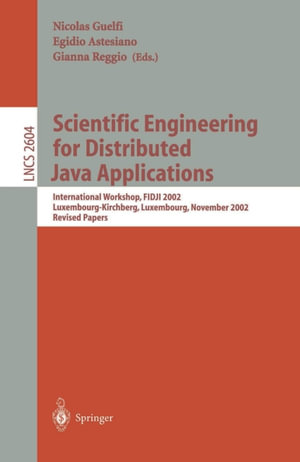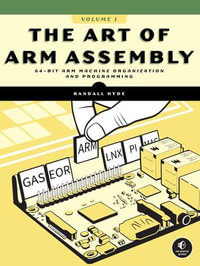
eTEXT
Scientific Engineering for Distributed Java Applications
International Workshop, FIDJI 2002, Luxembourg, Luxembourg, November 28-29, 2002, Revised Papers
By: Nicolas Guelfi, ?Egidio Astesiano, ?Gianna Reggio
eText | 1 July 2003 | Edition Number 1
At a Glance
eText
$84.99
or
Instant online reading in your Booktopia eTextbook Library *
Read online on
Desktop
Tablet
Mobile
Not downloadable to your eReader or an app
Why choose an eTextbook?
Instant Access *
Purchase and read your book immediately
Read Aloud
Listen and follow along as Bookshelf reads to you
Study Tools
Built-in study tools like highlights and more
* eTextbooks are not downloadable to your eReader or an app and can be accessed via web browsers only. You must be connected to the internet and have no technical issues with your device or browser that could prevent the eTextbook from operating.
ISBN: 9783540365204
ISBN-10: 3540365206
Published: 1st July 2003
Format: PDF
Language: English
Publisher: Springer Nature
Edition Number: 1
You Can Find This eBook In
This product is categorised by
- Non-FictionComputing & I.T.Computer Programming & Software DevelopmentSoftware Engineering
- Non-FictionComputing & I.T.Computer HardwareNetwork Hardware
- Non-FictionComputing & I.T.Computer ScienceArtificial Intelligence
- Non-FictionComputing & I.T.Computer Networking & Communications
- Non-FictionComputing & I.T.Computer Programming & Software Development























